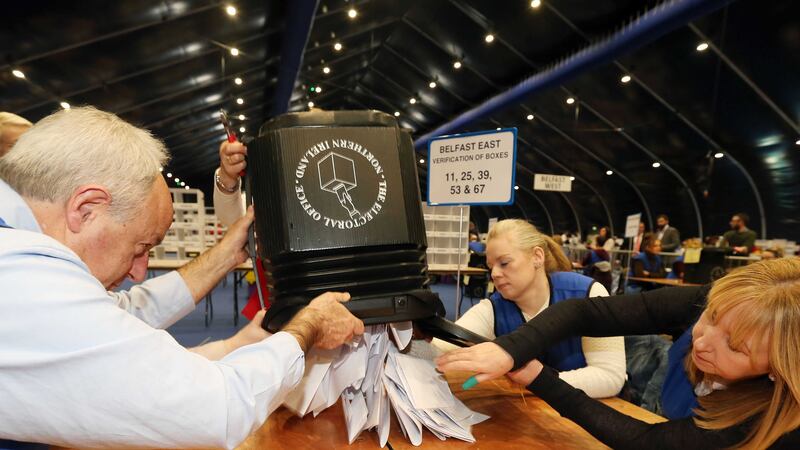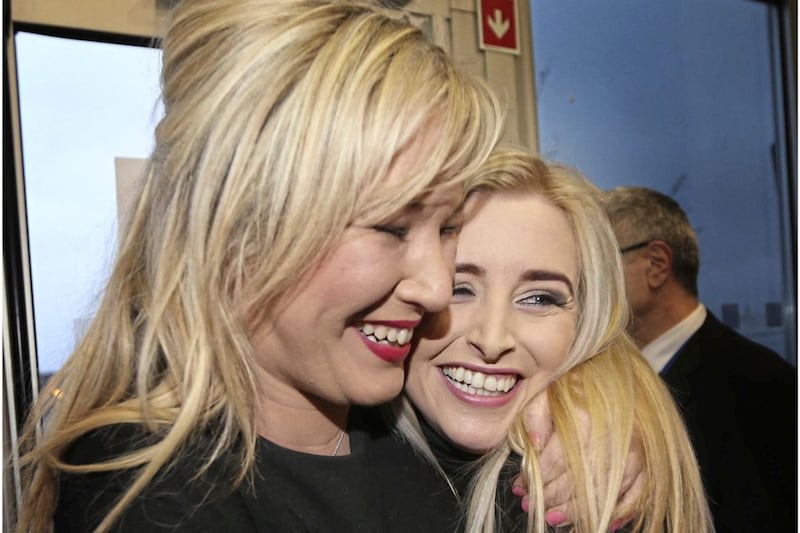NEGOTIATIONS on the shape of Northern Ireland's new power-sharing government are expected to begin this week.
Politicians will convene at Stormont to hammer out priorities for the next five years and establish which parties will take on ministerial portfolios.
In a change to the last Assembly election, the programme for government is being worked out before the Executive is formed and parties will have to decide whether or not to form an official opposition.
The SDLP and Ulster Unionists, who had disappointing election results, have declined to confirm on which side of the fence they will sit.
Newly elected North Belfast MLA Nichola Mallon said on the BBC's Sunday Politics: "We will be going tomorrow (Monday) morning up to the Assembly.
"We will be talking to other parties and we will wait to see what the content of the programme for government is," said Ms Mallon of the SDLP.
"If the content is strong and if it delivers on some of our key pledges then yes, we will be in government."
"If it does not, we will need to reflect upon that and consider our position."
Robin Swan, who was returned as an MLA in North Antrim, was equally non-committal but added that the UUP "do not want to be part of more of the same".
"We want to see what is in the discussions," he said.
"We want to see what each party is putting on the table for the programme for government.
"Each party put out a manifesto, we want to see what makes up the final programme for government and see if the other parties are genuinely committed."
Of the 108 candidates elected to Stormont, the DUP has 38, Sinn Fein 28, the Ulster Unionists 16, the SDLP 12, Alliance eight, PBPA two, Greens two, with the Traditional Unionist Voice (TUV) and independent Claire Sugden winning one each.
The figure of 38 seats won by the DUP is the same number it secured in 2011 in an election which many, including party strategists, viewed as a one-off historic high water mark.
DUP leader Arlene Foster returns to Stormont as First Minister, six months after she replaced the retiring Peter Robinson.
Sinn Fein's 28 seats result was one short of its tally in 2011. It was also shy of the significant 30-seat threshold that would have handed the republican party extra power to veto Assembly legislation using the controversial "petition of concern".
Martin McGuinness, who will be returning as Deputy First Minister, said he hoped the Assembly would deliver.
He said: "On Monday we will be entering discussions to agree and conclude a deliverable programme of government.
"I believe that with good will from all parties we can build a prosperous economy and deliver jobs, we can invest in our health and public services, and we can continue to build reconciliation, unity and equality."
The SDLP, the once dominant power within nationalism, has dropped two seats on its 2011 tally.
Though the UUP repeated the 16-seat haul of 2011, it did not make the in-roads leader Mike Nesbitt had confidently predicted.
For the Alliance Party, which also won eight seats in 2011, it was also a case of "as you were".
Whatever the exact make-up of the next power-sharing administration, it is sure to face vocal criticism from the tough-talking socialists Gerry Carroll and Eamonn McCann who secured two seats for the People Before Profit Alliance.
They will join political polar opposite - Jim Allister, leader of the Traditional Unionist Voice in the so-called "naughty corner" of the chamber.
Mr Allister, arch-critic of the last administration, retained his seat but failed to bring any colleagues in.
The Green Party also secured two seats in the new mandate, with party leader Steven Agnew and Clare Bailey winning through in South Belfast.
Claire Sugden, who was co-opted during the last term into the seat held by the late independent David McClarty, also won a berth at Parliament Buildings in her own right.







